Wildebeest Migration / Wildebeest Crossings / Herdtracker
Wildlife / Safaris / Holidays
Home » Masai Mara Wildebeest Migration
This is one of the greatest wildlife shows you will ever wish to witness while alive. Imagine more than 1.5 million animals migrating yearly in search of green grounds and water. The magnitude of these animals migrating around in a circuit for more than 1000 kilometers. This is where the great wildebeest migration in Masai Mara comes in as part of this experience.
It is only in Masai Mara and Serengeti, that you will see such a magnitude of animals migrating between two countries. The migration in Masai Mara is a force to reckon with, witnessing these herds crossing major rivers just to look for food, is something you wouldn’t miss. Imagine them jumping high cliffs, to cross crocodile-infested rivers, some survive and some die during these hiatus.
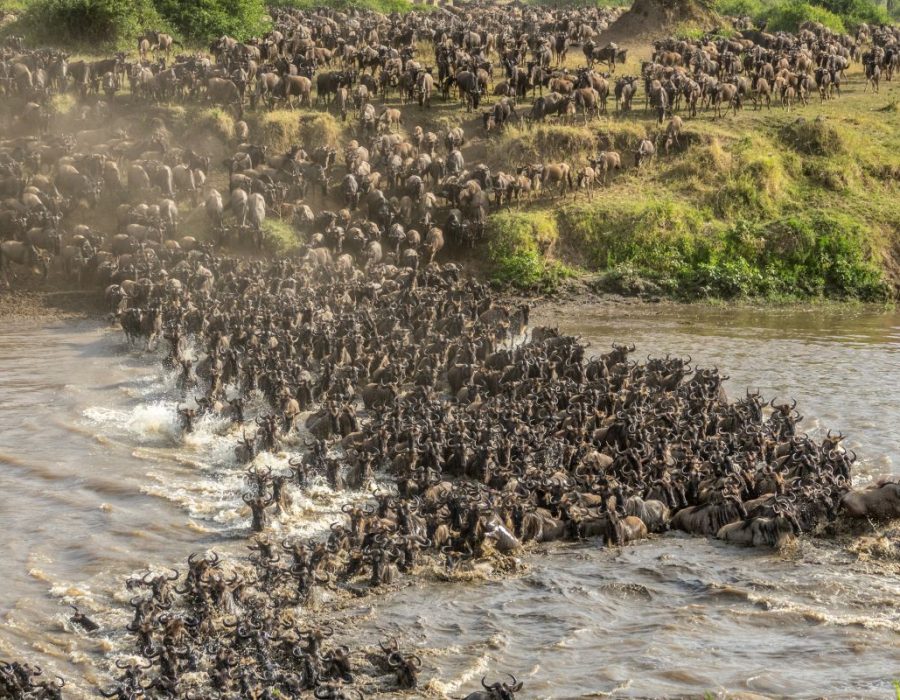
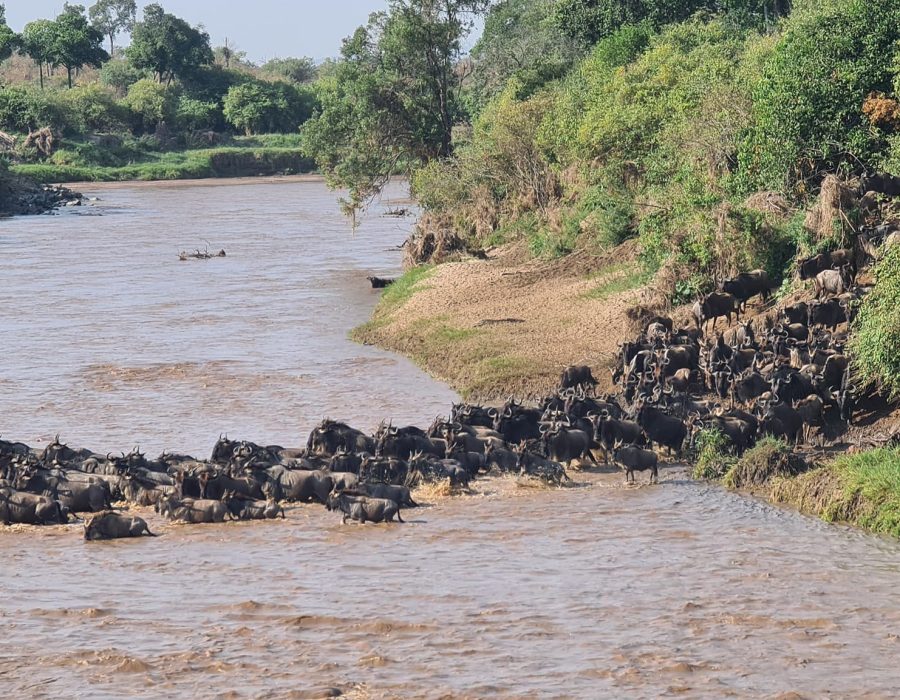
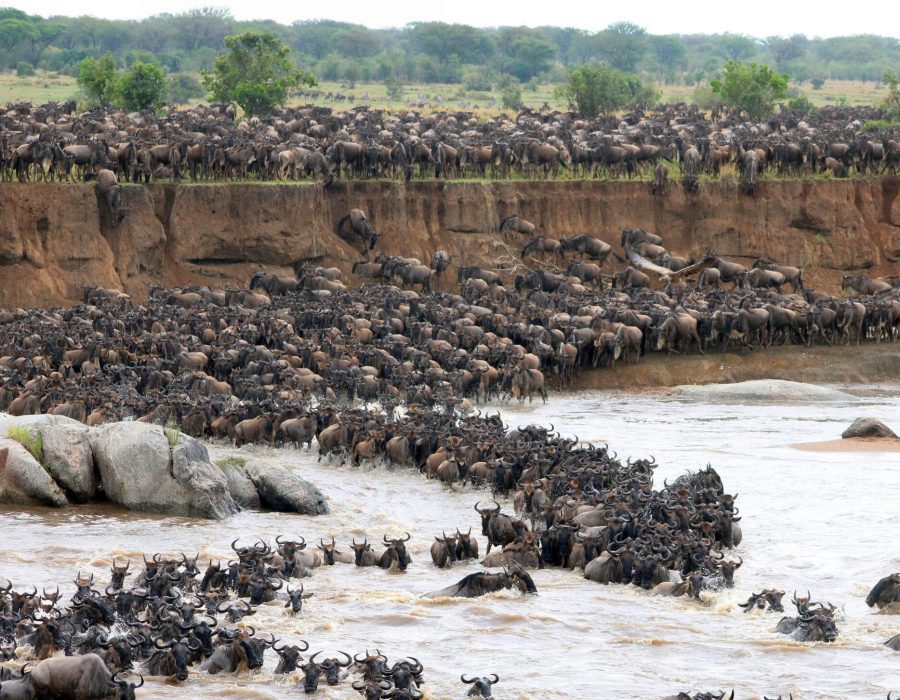
The great migration only happens within four months in Masai Mara, which is between July and October. This time, the wildebeests are congregated in the main Masai mara reserve, filling up the plains to the brim.
It’s easy to spot them anywhere around the reserve and conservancies around the Mara. Big cats’ activities intensify and lots of them have plenty of food available with ease.
The wildebeests do come to Masai Mara mainly due to the best weather conditions that allow them to mate, to give birth during the calving season in Ndutu Tanzania.
There are six major wildebeest crossing points in the Masai Mara. This includes the Kichwa Crossing Point, which is located within the Mara North Conservancy. The second crossing is the Little Governor’s Crossing Point, which is located within the Masai Mara National Game Reserve. The third crossing is the Serena Crossing Point and is also located within the National Game Reserve.
Other Major wildebeest crossing points in Masai Mara are the Lookout Crossing Point and the Sand River Crossing Point all located towards the east of the reserve. These are major crossing points in Masai Mara as they invite and seem favourable to thousands of wildebeest for crossings, and offer guests views of intensified and thrilling crossings.
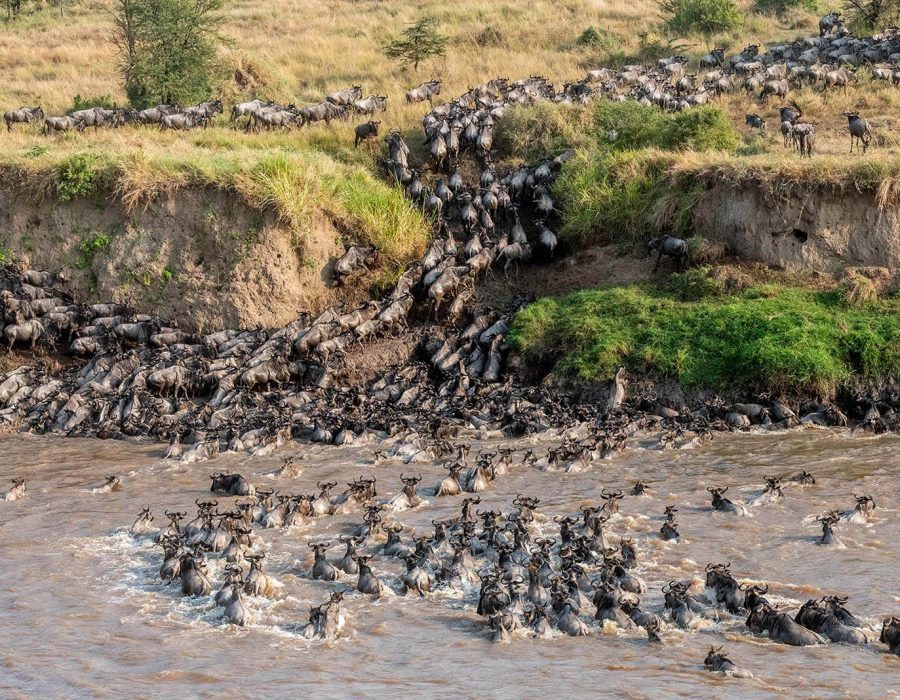
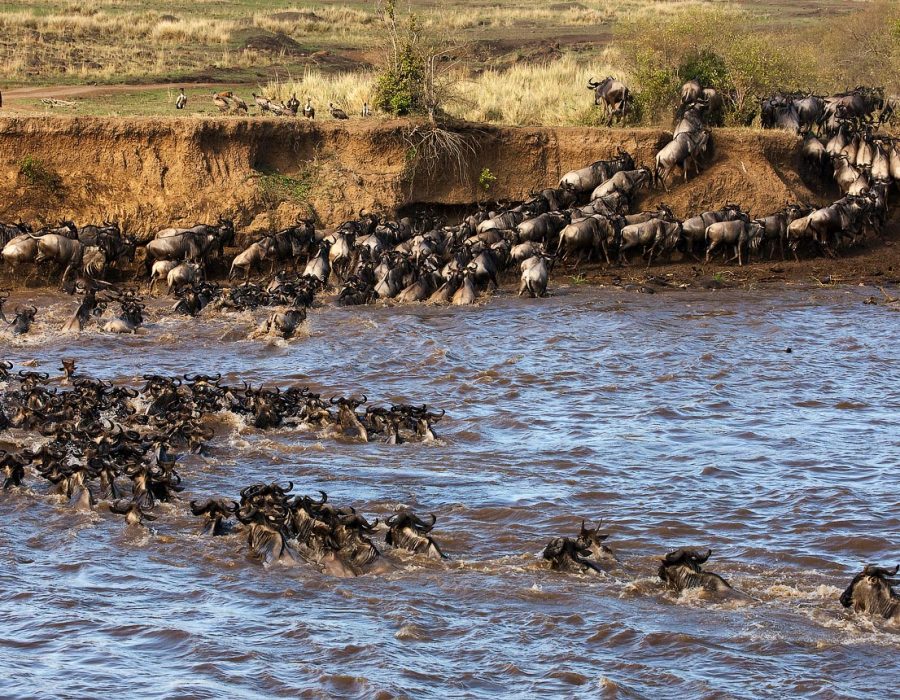
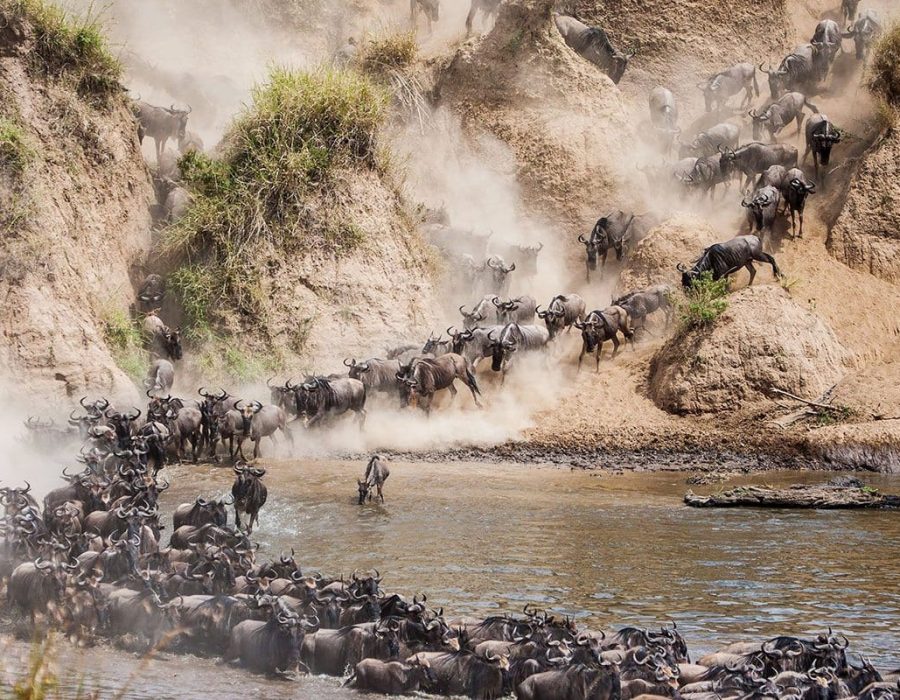
The best time to see the great wildebeest migration and to witness a crossing is in August and September. But the herd always arrives early in the Masai Mara as early as even June. Generally, the wildebeests are always around the Masai Mara between July to October of every year.
There is no better time to see the great migration in Kenya’s Masai Mara apart from August and September of every year. This time the wildebeest crossing is always massive, with huge herds jumping off high cliffs and crossing the rivers. Visit the Reserve during this season, and you wont miss a sight of them.
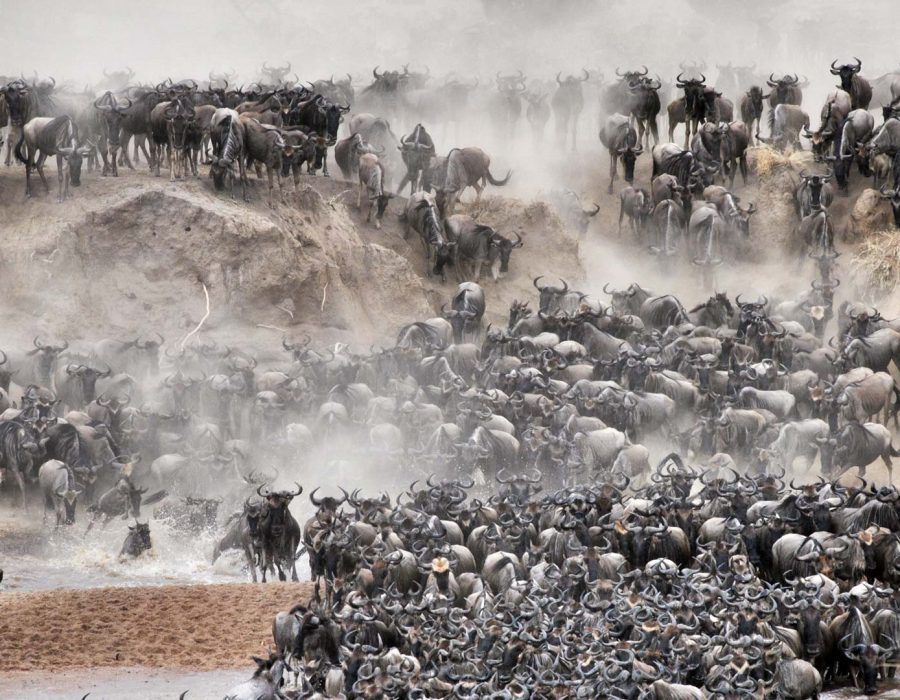
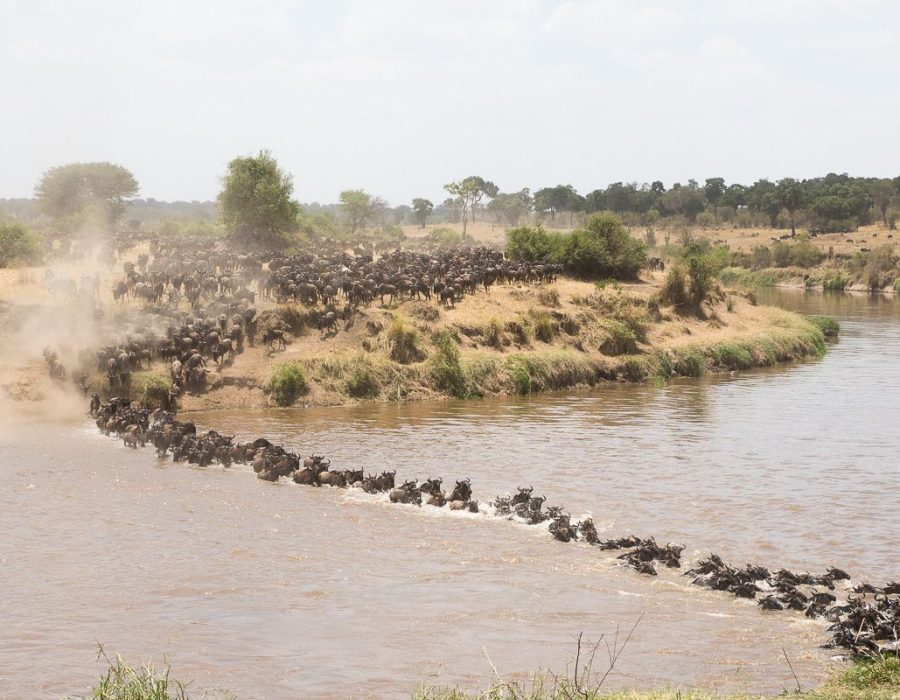
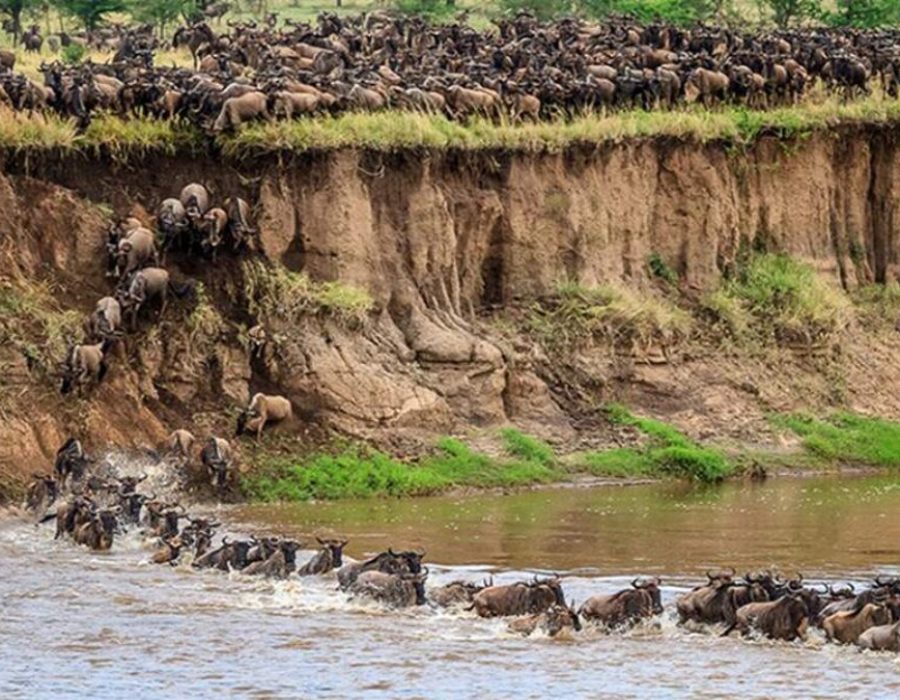
To witness the great wildebeest migration in the Masai Mara, there are factors you need to consider, and one major one is where you will stay. A front-row safari camp to spend it does not come easy, as these camps are always booked way ahead before even the season starts.
It is therefore recommended to book your wildebeest migration safari in Masai Mara as early as possible to have a smooth and well-planned safari adventure. We can help you plan your Wildebeest Migration expedition in Masai Mara with ease and expertise. Talk to us for bookings.
Angama Mara is one of Kenya’s most breathtaking lodges, set high on the Oloololo Escarpment with sweeping, endless views of the Masai Mara below. Its name, “Angama,” means “suspended in mid air” in Swahili, and
Porini Cheetah Camp is an exclusive, eco-conscious safari camp tucked away in the private Ol Kinyei Conservancy, part of the larger Maasai Mara ecosystem. Designed for travelers who value authenticity and privacy, the camp offers
Olare Mara Kempinski is a luxurious tented camp set in the private Olare Motorogi Conservancy, bordering Kenya’s world famous Masai Mara National Reserve. Nestled alongside the Ntiakitiak River, the camp offers an exclusive and intimate
We have had so many people miss availability for their migration safaris in 2025. Contact us now to secure your spot for this amazing spectacle in 2026.
Get notified about new wildebeest sightings